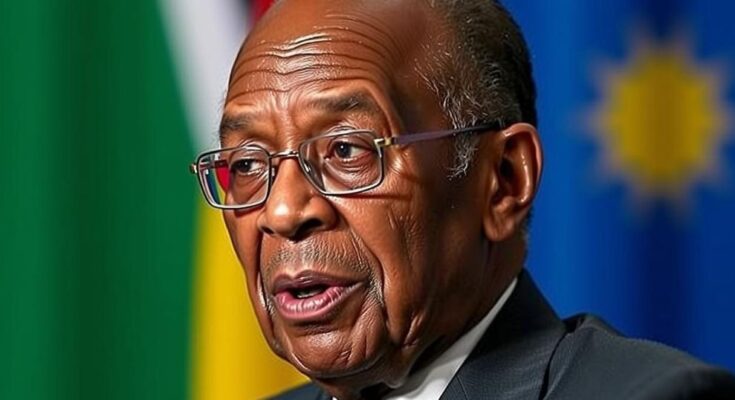Botswana’s President Mokgweetsi Masisi has conceded defeat in the elections after preliminary results indicated the loss of parliamentary majority by his party, the Botswana Democratic Party (BDP), which had ruled for nearly sixty years. The opposition coalition, UDC, is poised to take power as President Masisi respects the democratic process. Economic challenges have contributed to this significant political shift in the country.
In a historic shift, Botswana’s President Mokgweetsi Masisi has acknowledged defeat in the recent elections after preliminary results indicated that his party, the Botswana Democratic Party (BDP), has lost its parliamentary majority. This marks the end of the BDP’s nearly sixty-year rule over the nation. According to reports from the private Mmegi newspaper and state radio, the BDP has suffered a significant defeat, with the opposition coalition, Umbrella for Democratic Change (UDC), leading in several key constituencies and positioning its leader, Duma Boko, potentially on the path to the presidency. During a press conference following the preliminary results, President Masisi expressed his intent to respect the democratic process by conceding to the will of the electorate, stating, “Although I wanted to stay on as your president, I respect the will of the people and I congratulate the president-elect. I will step aside and I will support the new administration.” Analysts had anticipated a competitive election; however, the BDP was still expected to secure a victory. The party has presided over Botswana since the nation gained independence from British colonial rule in 1966. The current voting results suggest that, with data from 36 of the 61 constituencies counted, opposition parties have secured a substantial majority in parliament, which holds the authority to elect the president. Reports indicate that the BDP has secured only one seat, in stark contrast to the UDC, which has garnered 25 seats. A party must win a minimum of 31 constituencies to claim a parliamentary majority in this significant election. Botswana has historically enjoyed a reputation for political stability and economic prosperity, bolstered by its rich diamond resources and a relatively small population benefiting from free healthcare and education. However, recent downturns in the diamond market have strained national revenues, emphasizing the need for economic diversification.
The recent elections in Botswana represent a significant political development in the country, which has been governed by the Botswana Democratic Party (BDP) since its independence. The BDP’s dominance has shaped Botswana into a stable nation with economic growth, largely attributed to its diamond mining sector, which is among the world’s leading producers. Nonetheless, the party’s long-standing reign is now being questioned, as the opposition coalition, Umbrella for Democratic Change (UDC), has gained substantial traction among voters, reflecting broader societal changes and economic challenges that necessitate a re-examination of governance and policy direction in the country.
The elections in Botswana mark a transformative moment in the nation’s political landscape, as President Mokgweetsi Masisi concedes defeat, allowing the UDC to potentially lead the country. This development not only signifies the end of an era for the BDP but also reflects the electorate’s demand for change amidst economic challenges. The transition to a new administration is anticipated to usher in fresh perspectives aimed at addressing the nation’s current economic difficulties and diversifying its revenue sources.
Original Source: www.theguardian.com




